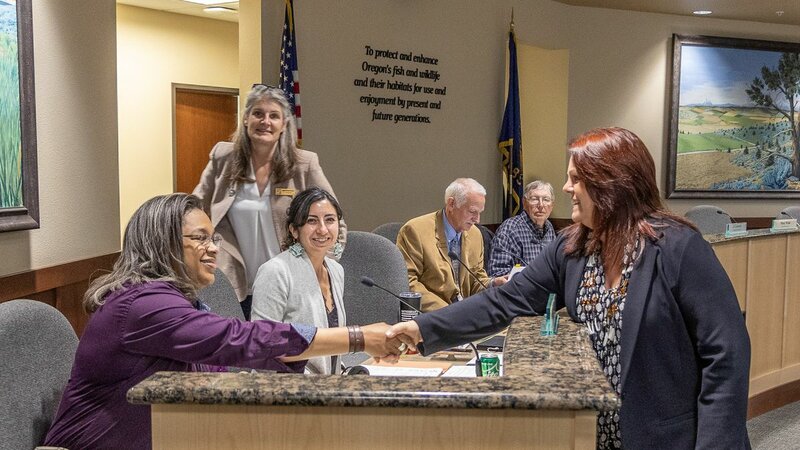An Oregon tribe and state leaders have agreed to co-manage fish and wildlife across a large swath of southwest Oregon, in what they say is a monumental arrangement and the first of potentially more comprehensive management partnerships between the state’s wildlife agency and tribal nations.
The Oregon Fish and Wildlife Commission on June 17 unanimously agreed to a framework agreement with the Coquille Indian Tribe, giving it more power in fish and wildlife management throughout a five-county area of southwest Oregon while also ensuring tribal members are able to fish, hunt, gather and trap on public lands for subsistence or ceremonial purposes under tribal regulations that the tribe and Oregon Department of Fish and Wildlife (ODFW) develop together.
“This is partially about the cultural restoration of my tribe,” Brenda Meade, chair of the Coquille Tribal Council, told commissioners. “But it is also about our tribal government working with the state as cooperative sovereigns on species restoration. It’s about collaboration and sharing of resources.”
Drastically declining numbers of Chinook salmon — a species that Coquille tribal citizens and other Indigenous people in the state have long relied on for cultural, spiritual and subsistence reasons — prompted the tribe last year to declare a tribal emergency and pushed state and federal leaders to more aggressively work to protect salmon populations returning to the more than 1,000 square-mile Coquille River watershed.



 Native Americans
Native Americans Wildlife
Wildlife Fishing
Fishing Culture
Culture


